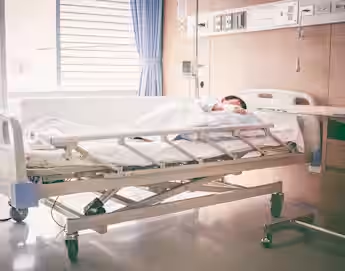Coinciding with the call from the parents of Martha Mills, the 13 year-old who died from sepsis, for patients to have the right to seek an urgent second medical opinion under Martha's Rule, I recently settled a claim on behalf of Michael* who suffered a very similar injury in almost identical circumstances. Michael's mother also felt that her concerns about the severity of her son's condition were not listened to nor taken seriously.
Michael was nine when he fell off his bike, causing the handlebars to hit his abdomen. Over the next few hours, Michael complained to his mother of severe abdominal pain and he started vomiting repeatedly. His mother called an ambulance and Michael was taken to A&E at the Queen Elizabeth Hospital, Woolwich.
The doctor who assessed Michael noted a high heart rate, right abdominal tenderness and bruising of the upper abdomen. Following an ultrasound scan (reported as showing no free fluid) and urinalysis, Michael was diagnosed with a soft tissue injury to the abdomen and discharged home with advice.
His symptoms of severe abdominal pain, vomiting and fever continued, however, and three days later, he returned to A&E at Queen Elizabeth Hospital. On examination, his upper abdomen was very tender. X-rays of his chest and abdomen showed no obvious abnormalities. He was discharged with pain medication.
Two days later, Michael was seen by his GP who was concerned about his symptoms and immediately referred him back to A&E. On this occasion, an urgent CT scan of his abdomen was requested. The CT scan showed a fracture across the neck of his pancreas with a large fluid collection. Other tests confirmed the diagnosis of pancreatic trauma. Michael was diagnosed with peritonitis (infection of the abdominal lining) secondary to pancreatic rupture.
Michael was transferred to King’s College Hospital and the decision was made to treat him conservatively with intravenous fluids and antibiotics rather than proceeding to surgery. Michael continued to suffer severe pain and required morphine. A CT scan showed a large collection of fluid in his abdomen.
Michael's condition deteriorated. He required surgery to place a stent into the pancreatic duct and a nasogastric tube for feeding. He required several further procedures to aspirate and drain the fluid from his abdomen. His mother was advised that he was critically ill and he was in danger of losing his life.
After a prolonged stay in hospital, fortunately Michael made a slow but good recovery with no long-term serious health complications relating to the ruptured pancreas. However, it took a number of years for the separated section of his pancreas to atrophy, during which time he continued to suffer intermittent bouts of debilitating abdominal pain. Sadly, the events in hospital have had an adverse effect on his mental health, which is ongoing.
The Hospital Trust made an early admission of liability based on a failure to adequately investigate (by way of an abdominal CT scan) and diagnose the ruptured pancreas on his first attendance at A&E at Queen Elizabeth Hospital on the day of his injury.
I am deeply concerned that children continue to be misdiagnosed and their injuries mismanaged. The hope is that if Martha's Rule is introduced, doctors will listen to the concerns of parents who clearly know their children best, and who will not feel intimidated to ask for a second opinion of care and treatment when they are concerned their children are being failed.
*name changed
Contact us
For further information about sepsis negligence claims and clinical negligence claims, please call Helen Thompson on 0330 460 6765 or email helen.thompson@fieldfisher.com.
Alternatively
- You can speak to our medical negligence lawyers on freephone 0800 358 3848
- email us: personalinjury@fieldfisher.com
- Complete the short online enquiry form
All enquiries are completely free of charge and we will investigate all funding options for you including no win, no fee.

